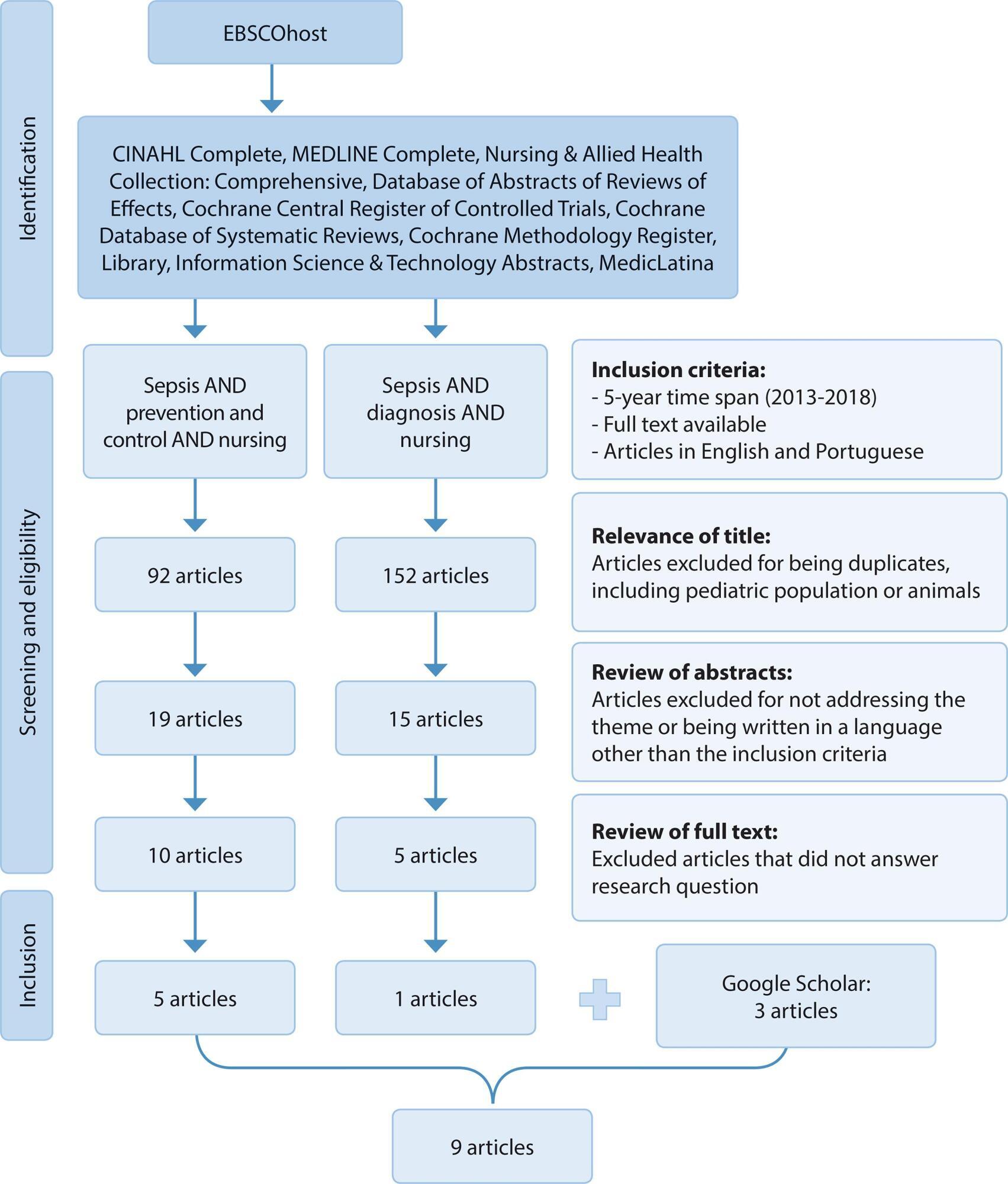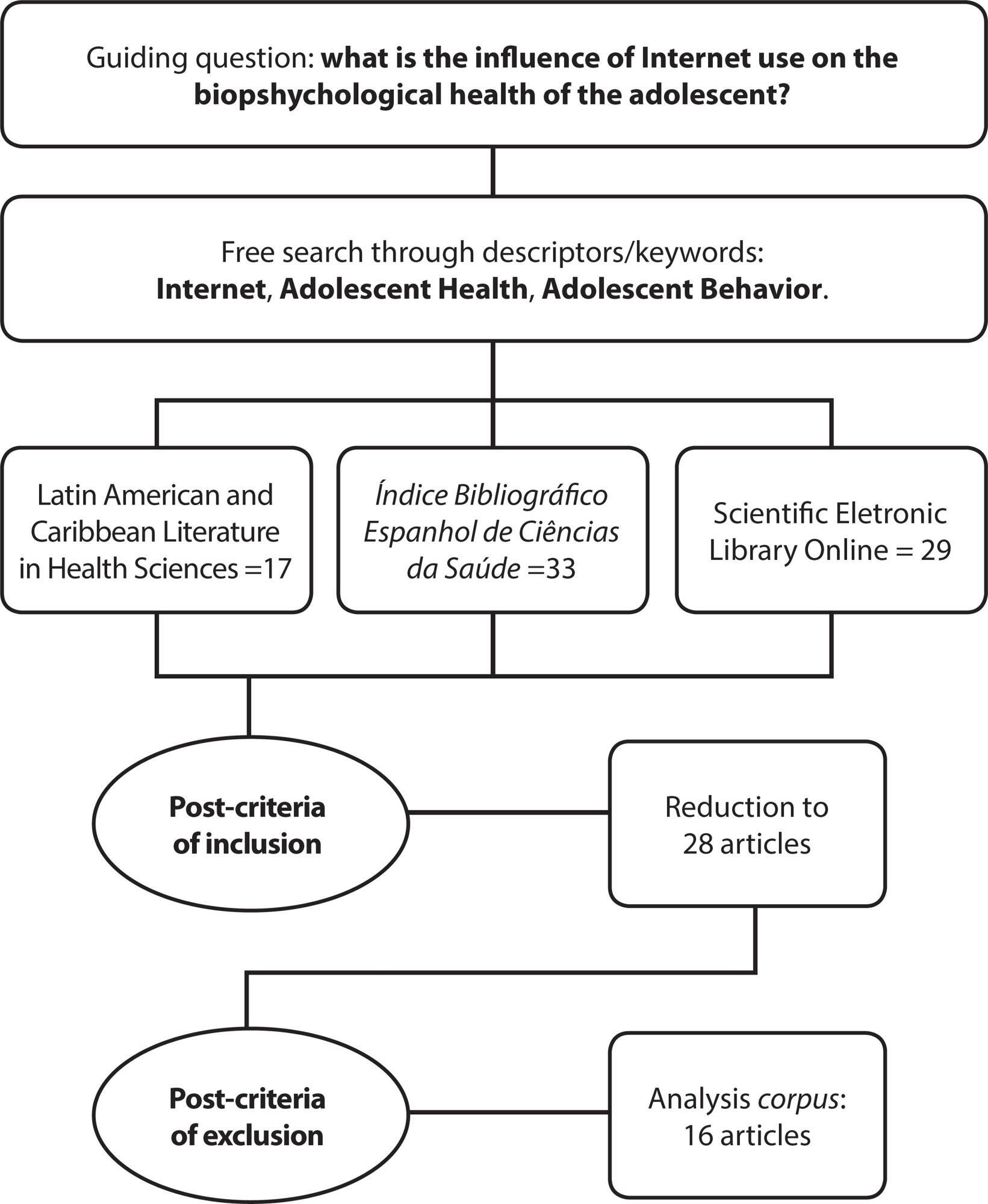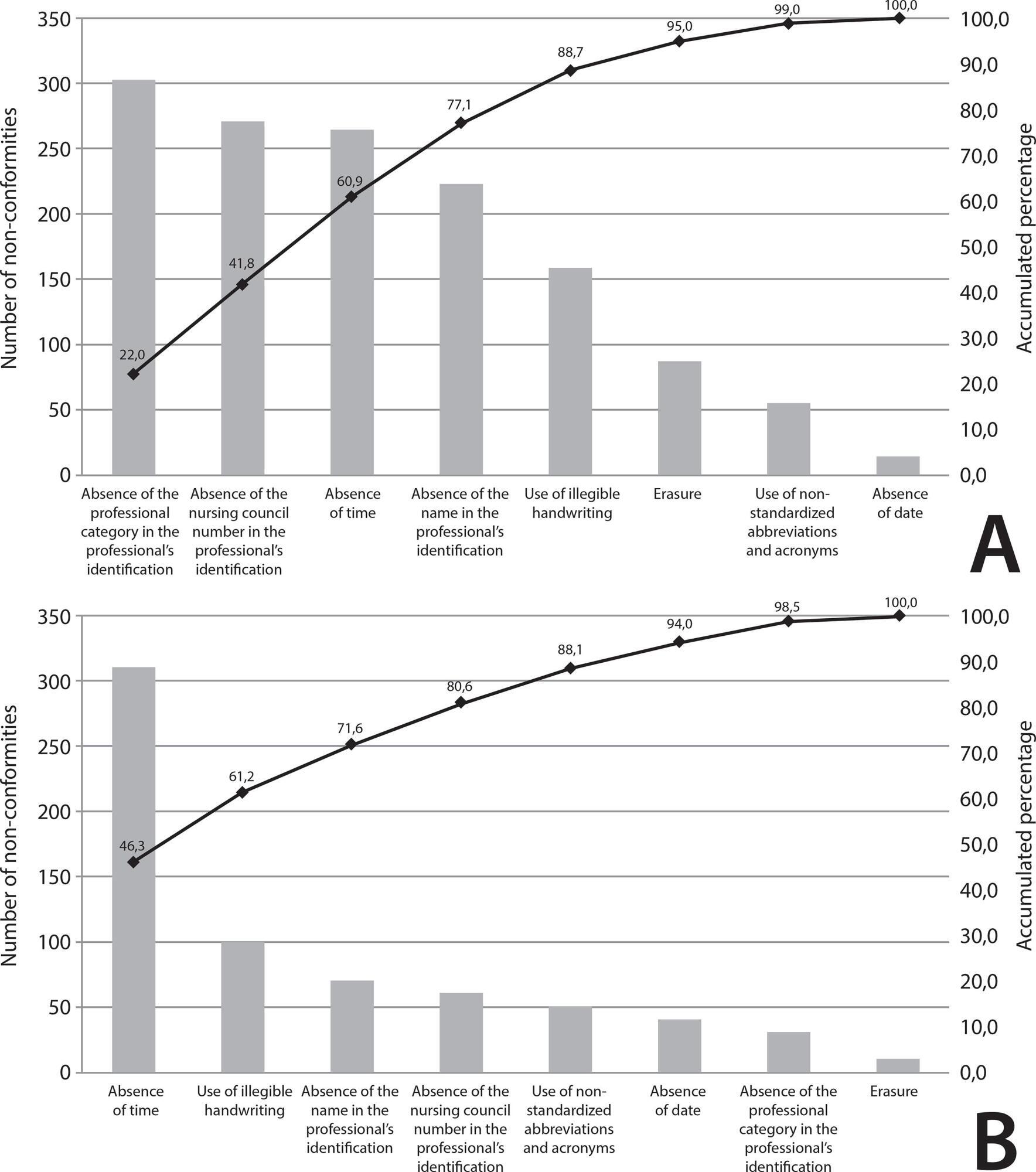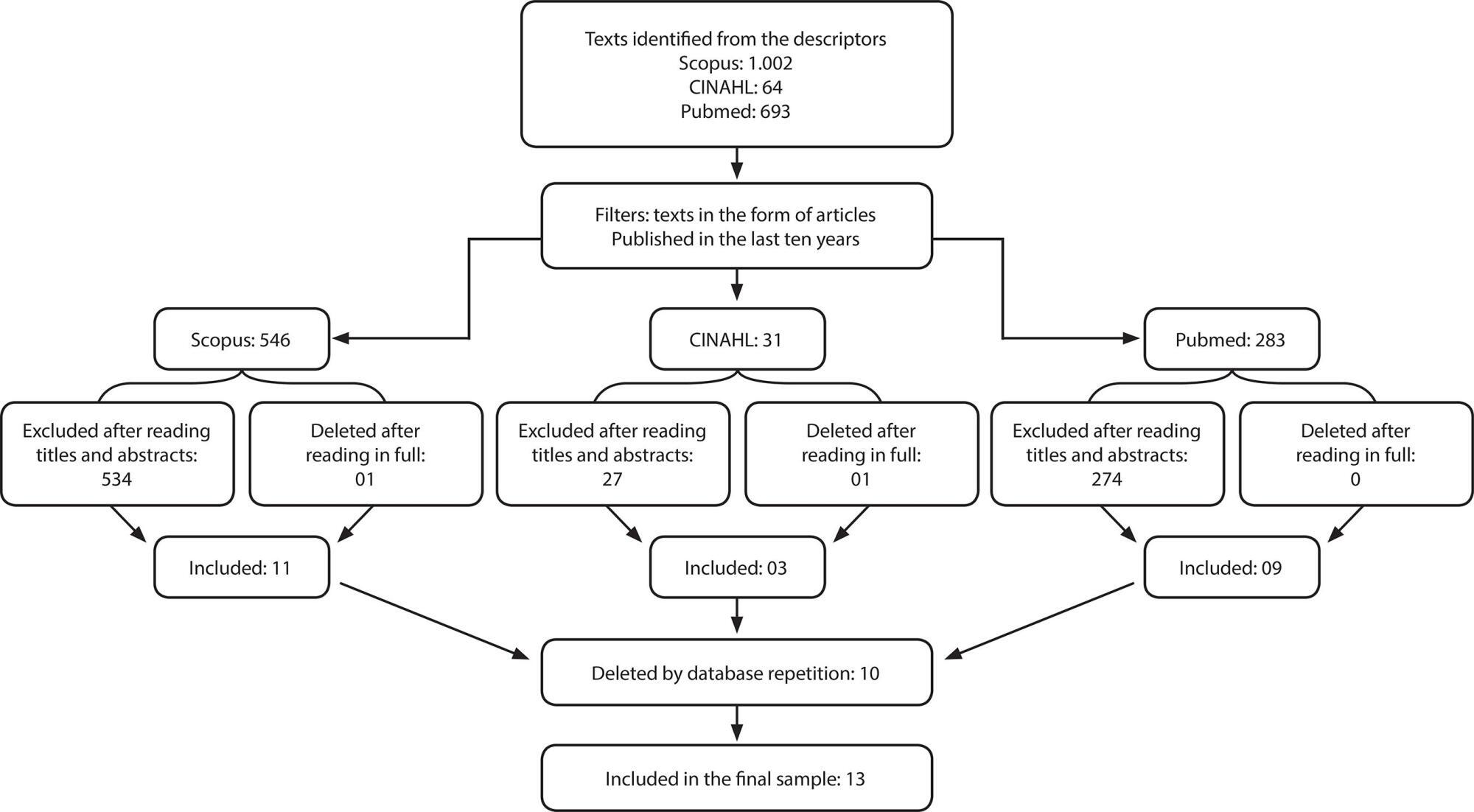-
01-01-2016
Epistemology of nursing care: a reflection on its foundations
Revista Brasileira de Enfermagem. 2016;69(6):1240-1245
Abstract
Epistemology of nursing care: a reflection on its foundations
Revista Brasileira de Enfermagem. 2016;69(6):1240-1245
DOI 10.1590/0034-7167-2016-0331
Views0See moreABSTRACT
Objective:
to reflect on nursing care and its epistemology from its historical, theoretical, philosophical, spiritual dimensions and as a social practice.
Method:
discussions originated in the discipline “Epistemology of caring”, from the graduate nursing program of the School of Nursing, Federal University of Minas Gerais, and in critical analysis of nursing literature together with the professional practice of the authors.
Results:
we identified the necessity of developing a critical conscience on health care provision, research, and teaching, as well as on challenges in maintaining high standards of working interpersonal relationships, which has a profound impact on population health.
Conclusion:
we suggest the rescue of integrality, humanization, unity, and spirituality in researches and practices of individual, familiar, and community care, as an advance in incorporating epistemology of caring in nursing.
-
01-01-2016
Health needs and nursing care
Revista Brasileira de Enfermagem. 2016;69(6):1236-1239
Abstract
Health needs and nursing care
Revista Brasileira de Enfermagem. 2016;69(6):1236-1239
DOI 10.1590/0034-7167-2016-0128
Views0See moreABSTRACT
Objective:
to present the concept of needs according to different approaches to discuss the possibility of health care that incorporates a broader view of human vulnerabilities in health services.
Methods:
the arguments are founded on nursing theorists who worked on the construction of frameworks relevant to care, based on needs and on philosophers who show the possibility of identifying the vulnerabilities of human beings, defending art as a therapeutic instrument that can promote health care.
Conclusion:
although care can acquire a new dimension with the introduction of art, according to certain perspectives, philosophical studies on ethics and aesthetics should be resumed to identify human vulnerabilities that can in fact be compensated by sensible understanding of the outer world. To incorporate art in nursing care requires studies from theorists to be recovered, deepening concepts and working on empirical investigations for their adequate use.
-
01-01-2016
Case studies and role play: learning strategies in nursing
Revista Brasileira de Enfermagem. 2016;69(6):1231-1235
Abstract
Case studies and role play: learning strategies in nursing
Revista Brasileira de Enfermagem. 2016;69(6):1231-1235
DOI 10.1590/0034-7167-2016-0277
Views0See moreABSTRACT
Objective:
to report professors’ experience in a public university of Southern region of Brazil using case studies and role play as learning strategies for nursing care of hospitalized adults.
Method:
learning experience report from the Nursing Care of Adults I class of nursing undergraduate course.
Results
the development of case studies and role play considered health care needs from epidemiological profile of chronic noncommunicable diseases morbidity and mortality, nursing as an assisting method, and social aspects of hospitalized individuals. Role play planning was made by creating a stage in laboratory of practices and dialogues comprising students and professors interaction.
Conclusion
case studies and role play encouraged students to active search for learning and brought theory closer to real health care situations.

-
01-01-2016
Politicy of care in the criticism towards gender stereotypes
Revista Brasileira de Enfermagem. 2016;69(6):1223-1230
Abstract
Politicy of care in the criticism towards gender stereotypes
Revista Brasileira de Enfermagem. 2016;69(6):1223-1230
DOI 10.1590/0034-7167-2016-0441
Views0See moreABSTRACT
Objectives:
analyze gender inequalities among Brazilian women in Portugal and in contemporary nursing based on care politicity in the light of gender; disclose oppression of the female produced by the stereotypes that look upon women as natural caregivers; point out politicity to deconstruct gender stereotypes.
Method:
theoretical reflection with narrative review of literature to analyze classic references in the feminist epistemology combined with the care politicity thesis.
Results:
the similarities between the stereotypes of the Brazilian Eves and the Portuguese Maries as either the sexualized or sanctified nurse are inserted in the Jewish-Christian moral genealogy that reaffirms the subservience of the female to the male.
Conclusion:
by attaching priority to care that needs non-care to expand the possibilities of care giving, the theoretical assumption of politicy of care can contribute to subvert the stereotypical images of Brazilian women in Portuguese lands and in contemporary nursing.
-
01-01-2016
Strategies for thirst relief: integrative literature review
Revista Brasileira de Enfermagem. 2016;69(6):1215-1222
Abstract
Strategies for thirst relief: integrative literature review
Revista Brasileira de Enfermagem. 2016;69(6):1215-1222
DOI 10.1590/0034-7167-2016-0317
Views0See moreABSTRACT
Objective:
to analyze the strategies used to relieve the thirst of hospitalized patients.
Method:
an integrative review, for which the databases PubMed, LILACS, CINAHL and the group of references organized by the Group for Study and Research of Thirst were selected for the search of primary studies, with the keywords: thirst, ice, cold, intervention, nursing care, artificial saliva.
Results:
the review sample was composed of ten primary studies. The strategies found were: low temperature using frozen gauze, ice chips, and cold water, menthol associated with cold strategies, chewing gum, acupressure, and the use of a thin straw, substitute saliva, and early fluid ingestion.
Conclusion:
the temperature was presented as a predominant and effective strategy to relieve the thirst for surgical patients in intensive care and hemodialysis treatment.

-
01-01-2016
Care of the self and power relations: female nurses taking care of other women
Revista Brasileira de Enfermagem. 2016;69(6):1204-1214
Abstract
Care of the self and power relations: female nurses taking care of other women
Revista Brasileira de Enfermagem. 2016;69(6):1204-1214
DOI 10.1590/0034-7167-2016-0021
Views0See moreABSTRACT
Objective:
to analyze the care of self of female nurses and the power relations established by them in the care of other women.
Method:
integrative review of literature published between 2005 and 2015. There were 25 publications in the sample.
Results:
qualitative state of the art with reference domain of a liberating perspective, based on humanization, autonomy and empowerment as a risk reduction strategy in the practice of care to women. The findings suggest solidified power relations among female nurses and women, focused on professional domain concentrated on nurse education under the patriarchal and society’s normalization discourse. Some studies consider the importance of understanding power in a capillary way, operating on the bodies of individuals.
Conclusion:
there is little discussion about the care of self of nurses and the effects on their professional practice, indicating gaps in knowledge in this field.

-
01-01-2016
Nursing competencies in promoting the health of individuals with chronic diseases
Revista Brasileira de Enfermagem. 2016;69(6):1195-1203
Abstract
Nursing competencies in promoting the health of individuals with chronic diseases
Revista Brasileira de Enfermagem. 2016;69(6):1195-1203
DOI 10.1590/0034-7167-2016-0312
Views0See moreABSTRACT
Objective:
to identify nurse’s competencies related to health promotion of individuals with chronic cardiac disease, in the light of the Galway consensus.
Method:
integrative literature review was conducted to search for studies published between 2010 and 2014 in the databases LILACS, BDENF, IBECS; and PubMed in February 2015. The 21 included studies were analyzed according to the eight domains of competence: Catalyzing change, Leadership, Evaluation, Planning, Implementation, Assessment, Advocacy and Partnerships.
Results:
all domains of competence were included in the nursing interventions in health promotion of chronic cardiac patients, and the Planning and Evaluation were the most evident competences.
Conclusion:
the results of this research highlighted the nurse as an agent capable of operating care management, in order to improve coordination of the latter with work and education and, thus, the health care of the population.

-
01-01-2016
Assisted therapy with dogs in pediatric oncology: relatives’ and nurses’ perceptions
Revista Brasileira de Enfermagem. 2016;69(6):1188-1194
Abstract
Assisted therapy with dogs in pediatric oncology: relatives’ and nurses’ perceptions
Revista Brasileira de Enfermagem. 2016;69(6):1188-1194
DOI 10.1590/0034-7167-2016-0243
Views0See moreABSTRACT
Objective:
to understand the perception of nursing staff professionals and legal guardians of children and adolescents with cancer regarding Assisted Therapy with dogs.
Method:
qualitative study based on participant observation conducted with 16 participants in a reference hospital of child cancer. We applied an in-depth interview and interpreted the data according to a content analysis technique.
Results:
the practice is admittedly beneficial to participants despite the fact they do not understand its true objectives and therapeutic applications. Participants only associate it with something distracting and entertaining without realizing the occurrence of a more complex process behind it, which comprises changes besides the emotional ones (more easily perceived).
Conclusion:
the perceptions of participants reinforce recommendations that can be applied in the hospital environment, also showing that the therapy in question can become an effective technology to promote the health of children and adolescents with cancer.
-
REVIEW06-17-2020
The role of the nurse in caring for the critical patient with sepsis
Revista Brasileira de Enfermagem. 2020;73(4):e20190031
Abstract
REVIEWThe role of the nurse in caring for the critical patient with sepsis
Revista Brasileira de Enfermagem. 2020;73(4):e20190031
DOI 10.1590/0034-7167-2019-0031
Views0See moreABSTRACT
Objectives:
to know the nursing interventions in the identification, prevention and control of sepsis in critical patients.
Methods:
integrative review of the literature, with two parallel researches using different MesH terms, using the EBSCO database and Google Scholar. Nine studies were included in the sample.
Results:
nursing interventions are centered on the creation/implementation of protocols for the early recognition of sepsis, the training of teams to ensure a safe and effective approach and the adoption of measures for infection prevention and control as a way to prevent sepsis.
Final Considerations:
the evidence shows that nurses are fundamental in the early identification, control and prevention of sepsis, preventing disease progression and contributing to decreased morbidity and mortality.

-
ORIGINAL ARTICLE02-10-2020
Common Mental Disorders and Contemporary Factors: 1982 Birth Cohort
Revista Brasileira de Enfermagem. 2020;73(1):e20180162
Abstract
ORIGINAL ARTICLECommon Mental Disorders and Contemporary Factors: 1982 Birth Cohort
Revista Brasileira de Enfermagem. 2020;73(1):e20180162
DOI 10.1590/0034-7167-2018-0162
Views0See moreABSTRACT
Objective:
To describe the association between common mental disorders and socio-demographic variables, smoking habits and stressful events among the 30-year-old members of a 1982 cohort.
Method:
Mental disorder was analyzed by the Self-Reporting Questionnaire (SRQ-20). Poisson regression was used to analyze the unadjusted and adjusted associations.
Results:
Low level of education and stressful events increased the prevalence of mental disorders for both genders. Lower income for women and unemployment for men also remained associated with CMD.
Conclusion:
It was possible to describe the association between contemporary factors and mental disorders in a young population, to which prevention and control measures, through public policies proposed to the areas of Primary Care, Mental Health and Education, can represent a better quality of life and health.
-
ORIGINAL ARTICLE09-21-2020
Prevalence of xerostomia in women during breast cancer chemotherapy
Revista Brasileira de Enfermagem. 2020;73:e20190785
Abstract
ORIGINAL ARTICLEPrevalence of xerostomia in women during breast cancer chemotherapy
Revista Brasileira de Enfermagem. 2020;73:e20190785
DOI 10.1590/0034-7167-2019-0785
Views0See moreABSTRACT
Objective:
To identify the prevalence of xerostomia in women undergoing chemotherapy for breast cancer.
Method:
Prospective cohort with 27 women who underwent up to 16 sessions of intravenous chemotherapy. Data collection was performed at the outpatient clinic of a university hospital in the city of São Paulo, where two forms were applied before the start of treatment and the Xerostomia Inventory before and after each chemotherapy session.
Results:
Complaints of dry mouth were present in 48.1% of women before chemotherapy, and they were approximately 28 times more likely to develop dry mouth during treatment. It was observed that the use of antiemetics contributed to the occurrence of xerostomia, and the anti-ulcerous were presented as a protective factor.
Conclusion:
The study identified both a high prevalence of xerostomia regardless of the chemotherapy used and the need to create protocols to improve the quality of life of these patients.
-
ORIGINAL ARTICLE12-13-2019
Hammock and nesting in preterm infants: randomized controlled trial
Revista Brasileira de Enfermagem. 2019;72:96-102
Abstract
ORIGINAL ARTICLEHammock and nesting in preterm infants: randomized controlled trial
Revista Brasileira de Enfermagem. 2019;72:96-102
DOI 10.1590/0034-7167-2018-0099
Views0See moreABSTRACT
Objective:
To compare the physiological variables and the sleep-wake pattern presented by preterm in nesting and hammock positions after diaper change.
Method:
This is a crossover randomized controlled trial. It was conducted with 20 preterm infants who, after diaper change, were placed in nests or hammocks. These preterm infants were evaluated for physiological variables (heart rate and oxygen saturation) and behavioral variables (sleep and wakefulness).
Results:
There was no statistically significant difference in the studied variables between nesting and hammock positions. However, regarding the categorical variable sleep, the comparison between the research phases for the hammock position showed differences between the baseline phase and the immediate recovery (p=0.00), baseline and late recovery (p=0.00), response and immediate recovery (p=0.00), response and late recovery (p=0.00).
Conclusion:
No differences were identified between the nest and the hammock; however, the use of the hammock favored the sleep of preterm infants compared to its non-use.

-
ORIGINAL ARTICLE05-15-2020
Configuration of power relations in physicians and nurses’ professional practices
Revista Brasileira de Enfermagem. 2020;73:e20180629
Abstract
ORIGINAL ARTICLEConfiguration of power relations in physicians and nurses’ professional practices
Revista Brasileira de Enfermagem. 2020;73:e20180629
DOI 10.1590/0034-7167-2018-0629
Views0See moreABSTRACT
Objective:
to analyze the configuration of power relations constituted in and by the knowledge and daily practices of physicians and nurses in an Intensive Care Unit (ICU).
Method:
qualitative study in which data were collected through interviews with physicians and nurses from an ICU of a hospital in Belo Horizonte, Minas Gerais. A semi-structured script was used. Data were analyzed through discourse analysis in a Foucaultian perspective.
Results:
three categories were developed – Professional Identity: self-recognition in the profession; Discipline: individualizing attitudes or collective need?; and Circularity of knowledge and power in the constitution of daily practices.
Final considerations:
the identity, discipline and circulation of power are connected in a continuous movement of subjectivation of the subject, which, in turn, uses discourse as a persuasion strategy to modify the position taken over in different situations thereby causing the circulation of power.
-
REVIEW03-30-2020
Internet influence on the biopsychosocial health of adolescents: an integratitive review
Revista Brasileira de Enfermagem. 2020;73(2):e20180766
Abstract
REVIEWInternet influence on the biopsychosocial health of adolescents: an integratitive review
Revista Brasileira de Enfermagem. 2020;73(2):e20180766
DOI 10.1590/0034-7167-2018-0766
Views0See moreABSTRACT
Objectives:
To identify scientific evidence on the influence of internet use on adolescents’ biopsychosocial health.
Methods:
Integrative review, with database search, using the descriptors “internet”, “adolescent health” and “adolescent behavior”. After applying the inclusion and exclusion criteria, 16 articles were selected.
Results:
Knowledge convergence produced for three main themes was demonstrated: “Internet exposure time and possible damages to adolescent health”; “Internet, adolescent and cyberbullying”; and “Internet as a source of information for adolescent health”.
Final considerations:
The network involves an intricate network of interactions, providing varied behaviors and attitudes that reflect on adolescent health. Therefore, it is important to articulate nursing actions with the school community and the family, in order to carry out health education.

-
ORIGINAL ARTICLE02-17-2020
Analysis of records by nursing technicians and nurses in medical records
Revista Brasileira de Enfermagem. 2020;73(2):e20180542
Abstract
ORIGINAL ARTICLEAnalysis of records by nursing technicians and nurses in medical records
Revista Brasileira de Enfermagem. 2020;73(2):e20180542
DOI 10.1590/0034-7167-2018-0542
Views0See moreABSTRACT
Objectives:
to analyze the main non-conformities of the nursing records of a public hospital in Natal, Brazil.
Methods:
this is a descriptive, cross-sectional study, with a quantitative approach. This study was conducted in nursing departments of medical and surgical wards. The sample was composed of 120 medical records of inpatients between October and December 2016. The obtained data were tabulated and analyzed by simple statistics in absolute and relative frequency using the 2013 Microsoft Excel software. The Pareto Diagram was used to evaluate the non-conformities of the records.
Results:
the main problems in the nursing records were the absence of the professional category and the nursing council number, responsible for 41.8% of the non-conformities in the records of nursing technicians; for nurses’ records, the main non-conformities were the absence of time and the illegible handwriting, with 61.2%.
Conclusions:
the study showed that nursing professionals perform their records incompletely and often do not document the care provided.

-
12-05-2019
Hospital care and urinary incontinence in the elderly
Revista Brasileira de Enfermagem. 2019;72:284-293
Abstract
Hospital care and urinary incontinence in the elderly
Revista Brasileira de Enfermagem. 2019;72:284-293
DOI 10.1590/0034-7167-2018-0273
Views0See moreABSTRACT
Objective:
to identify factors inherent in hospital care that favor urinary incontinence in the elderly.
Method:
an integrative review with Scopus, CINAHL and Pubmed searches. Includes original articles, no language restriction, published between 2008 and 2018. Rated level of recommendation and level of evidence were assessed using the Oxford Center for Evidence-Based Medicine classification. Exploited content through thematic analysis in light of the Donabedian model.
Results:
13 articles constituted the sample. There were factors such as the unjustified and indiscriminate use of devices such as the geriatric diaper; hospital structure adversely affecting the needs of the elderly; and deficit in screening, risk identification and underreporting of the problem favor urinary incontinence in the hospitalized elderly.
Conclusion:
modifiable factors related to hospital structures and care processes favor both the onset and worsening of urinary incontinence in the elderly.

Search
Search in:
Nuvem de Tags
Adolescente (85) Atenção Primária à Saúde (239) COVID-19 (91) Criança (91) Cuidados de Enfermagem (269) Educação em Enfermagem (151) Educação em Saúde (139) Enfermagem (930) Enfermagem Pediátrica (86) Estudantes de Enfermagem (77) Estudos de Validação (131) Família (87) Idoso (208) Promoção da Saúde (99) Qualidade de Vida (104) Saúde do Trabalhador (86) Saúde Mental (145) Saúde Pública (82) Segurança do Paciente (150) Tecnologia Educacional (100)



